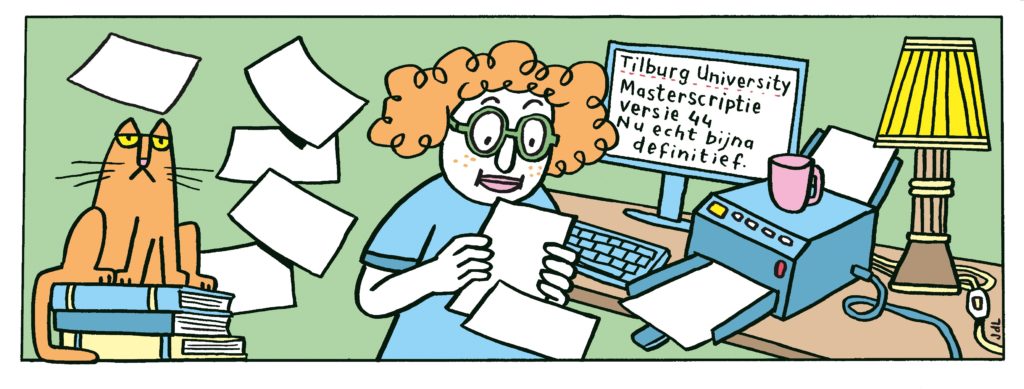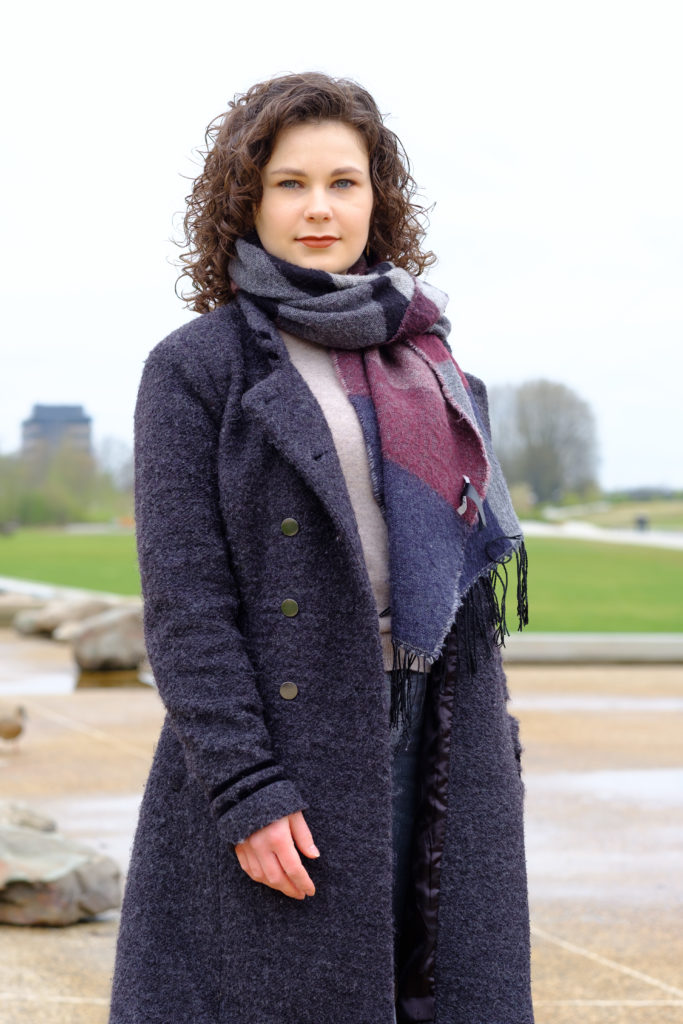Manon van Beeck: ‘Tilburg University Students score low on psychopathy’
A literature review, experimenting in the lab, or working with SPSS? Tilburg University students write a wide variety of theses. In the section Master’s Thesis, Univers highlights one every month. This time: five questions for Manon van Beeck. She studied Victimology and Clinical Forensic Psychology and wrote a thesis on the relationship between early childhood abuse and the development of psychopathic traits.

What is your thesis about?
“I investigated whether insecure attachment affects the relationship between early child maltreatment and the development of psychopathic traits later in life. In fact, we know that experiencing child maltreatment can lead to the development of psychopathic traits. Characteristically, psychopaths lack empathy for others and strive to make everything work out for themselves as best they can, without regard to others.
“Also, absence of a healthy relationship with the parent or caregiver, also known as insecure attachment, can lead to psychopathy. Yet the sum total of these three factors had not yet been correlated. My hypothesis was that child maltreatment does not lead directly to psychopathy but takes a detour through insecure attachment because victims of child maltreatment are unable to build good relationships because of that additional factor.”
How did you prove that?
“I had a large group of first-year students review three lists of statements that questioned them on the three aspects. First, I asked them if they had experienced child maltreatment. On insecure attachment, it contained statements such as, ‘I find it difficult to trust others’ and ‘I get frustrated when others are not available when I need them.’ To test psychopathic symptoms in the students, statements were included such as ‘It is most important to me to take care of myself, others do not interest me.’
“Based on the scores on the three factors, I was able to use a statistical analysis to determine what the dependency relationship was between insecure attachment and psychopathy. The good news is that Tilburg University students scored low on psychopathy. So, I hope that a school shooting will not occur on campus for the time being. Yet, there appeared to be a significant relationship between subjects who had experienced both child maltreatment and insecure attachment and their scores on psychopathy.
“In any case, that relationship is so strong that I recommend repeating the same study among ‘real’ psychopaths. My study took place among a non-representative group, and I think that a repeat among a clinical group may provide more insight into the behavioral disorders of people with psychopathic traits.”
(text continues below image)

What are your most striking results?
“There are several ways in which it can be expressed that, as a child, you never learned how to have a healthy relationship. Some people think only of themselves and don’t need relationships. Others want to be in a relationship but think the other person will disappoint them and therefore refrain from it. My research showed that these two forms are directly related to developing psychopathic traits; I found a positive correlation.
“I also found a surprising negative correlation. People who, because of insecure attachment, constantly seek affirmation and are eager to enter into social relationships score lower on psychopathy. So, in that case, insecure attachment is actually a protective factor that does not lead to the development of psychopathic traits.”
What makes your thesis unique?
“As I said, these three factors have not been linked before although there had been research on the relationship between psychopathy on the one hand and child maltreatment or insecure attachment on the other. So, in that sense the study was very innovative.
“That also made the writing difficult because there was virtually no literature, so I had to look closely at how to substantiate my results. I am quite proud of that although I have to say that I was very lucky that I was assigned this subject. On the other hand, you have to do something with the possibilities that are offered.”
Do you have any tips for other thesis writers?
“I’m sure it varies from person to person, but for me it worked well to start on time. And to take a few steps back now and then. What you can’t influence as a thesis writer but does help is a committed thesis supervisor. It’s pleasant to be able to exchange ideas and ask ‘dumb’ questions. The positive result of my thesis can, therefore, be partly attributed to my supervisor.”
Master’s Thesis
Author: Manon van Beeck
Title: The indirect effect of child maltreatment on psychopathic personality traits through insecure attachment
Grade: 9,5
Supervisor: Carlo Garafalo (TSB)
Translated by Language Center, Riet Bettonviel






